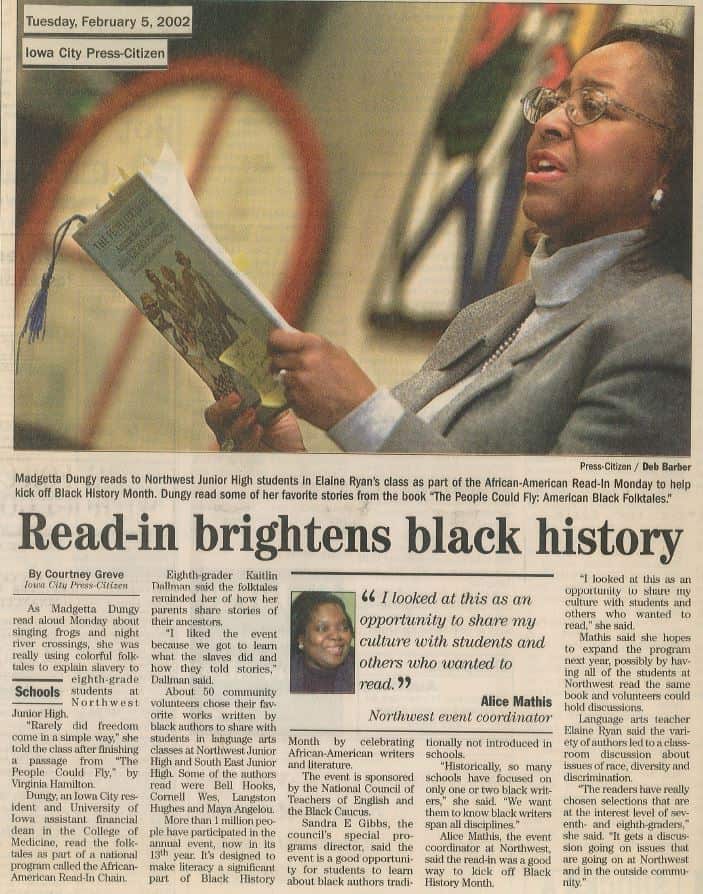The following post is written by University of Iowa senior, Jack Kamp. When I started my internship at the Iowa Women’s Archives (IWA), I knew I was interested in working with Black women’s history. As a student interested in the history of civil rights and social justice, I knew that this collection would giveContinue reading “Student Reflection: Processing the Madgetta Dungy Papers”
